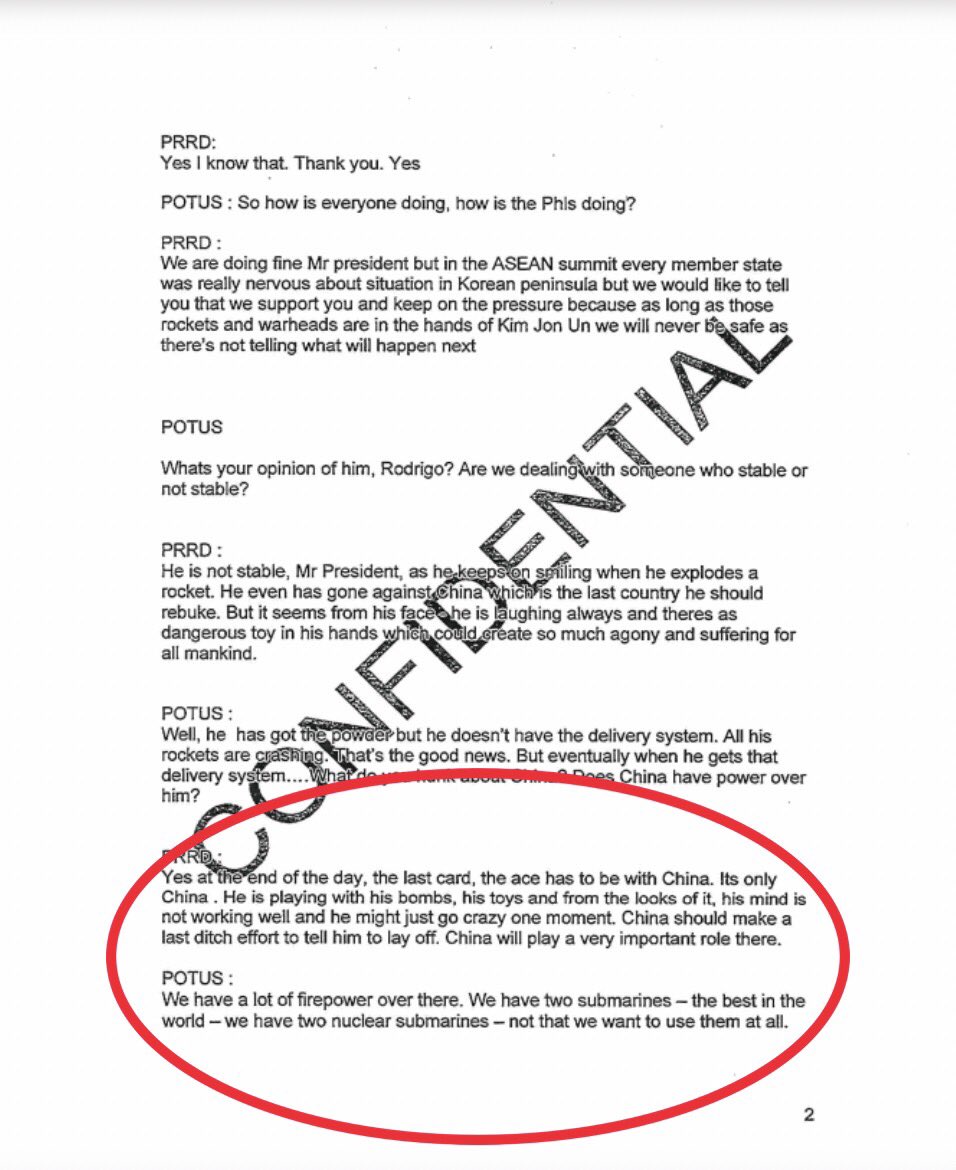Trump Tells Duterte of Two U.S. Nuclear Subs in Korean Waters

U.S. President Donald Trump told his Philippine counterpart that Washington has sent two nuclear submarines to waters off the Korean peninsula, the New York Times said, comments likely to raise questions about his handling of sensitive information.
Trump has said “a major, major conflict” with North Korea is possible because of its nuclear and missile programs and that all options are on the table but that he wants to resolve the crisis diplomatically.
North Korea has vowed to develop a missile mounted with a nuclear warhead that can strike the mainland United States, saying the program is necessary to counter U.S. aggression.
Trump told Philippine President Rodrigo Duterte Washington had “a lot of firepower over there”, according to the New York Times, which quoted a transcript of an April 29 call between the two.
“We have two submarines — the best in the world. We have two nuclear submarines, not that we want to use them at all,” the newspaper quoted Trump as telling Duterte, based on the transcript.
The report was based on a Philippine transcript of the call that was circulated on Tuesday under a “confidential” cover sheet by the Americas division of the Philippine Department of Foreign Affairs.
In a show of force, the United States has sent the nuclear-powered USS Carl Vinson aircraft carrier to waters off the Korean peninsula, where it joined the USS Michigan, a nuclear submarine that docked in South Korea in late April.

According to the Times, a senior Trump administration official in Washington, who was not authorized to publicly discuss the call and insisted on anonymity, confirmed the transcript was an accurate representation of the call between the two leaders.
U.S. officials, speaking on condition of anonymity, have said Trump discussed intelligence about Islamic State with Russian Foreign Minister Sergei Lavrov and Russian Ambassador Sergei Kislyak at talks in the Oval Office this month, raising questions about Trump’s handling of secrets.
Trump also praised Duterte for doing an “unbelievable job on the drug problem”, the New York Times reported, a subject that has drawn much criticism in the West.
Almost 9,000 people, many small-time users and dealers, have been killed in the Philippines since Duterte took office on June 30. Police say about one-third of the victims were shot by officers in self-defense during legitimate operations.
[Reuters]
Reality
BuzzFeed News is reporting that “Pentagon officials are in shock after the release of a transcript between President Donald Trump and his Philippines counterpart reveals that the US military had moved two nuclear submarines towards North Korea.”
The report goes on to quote officials as saying, “We never talk about subs!”








